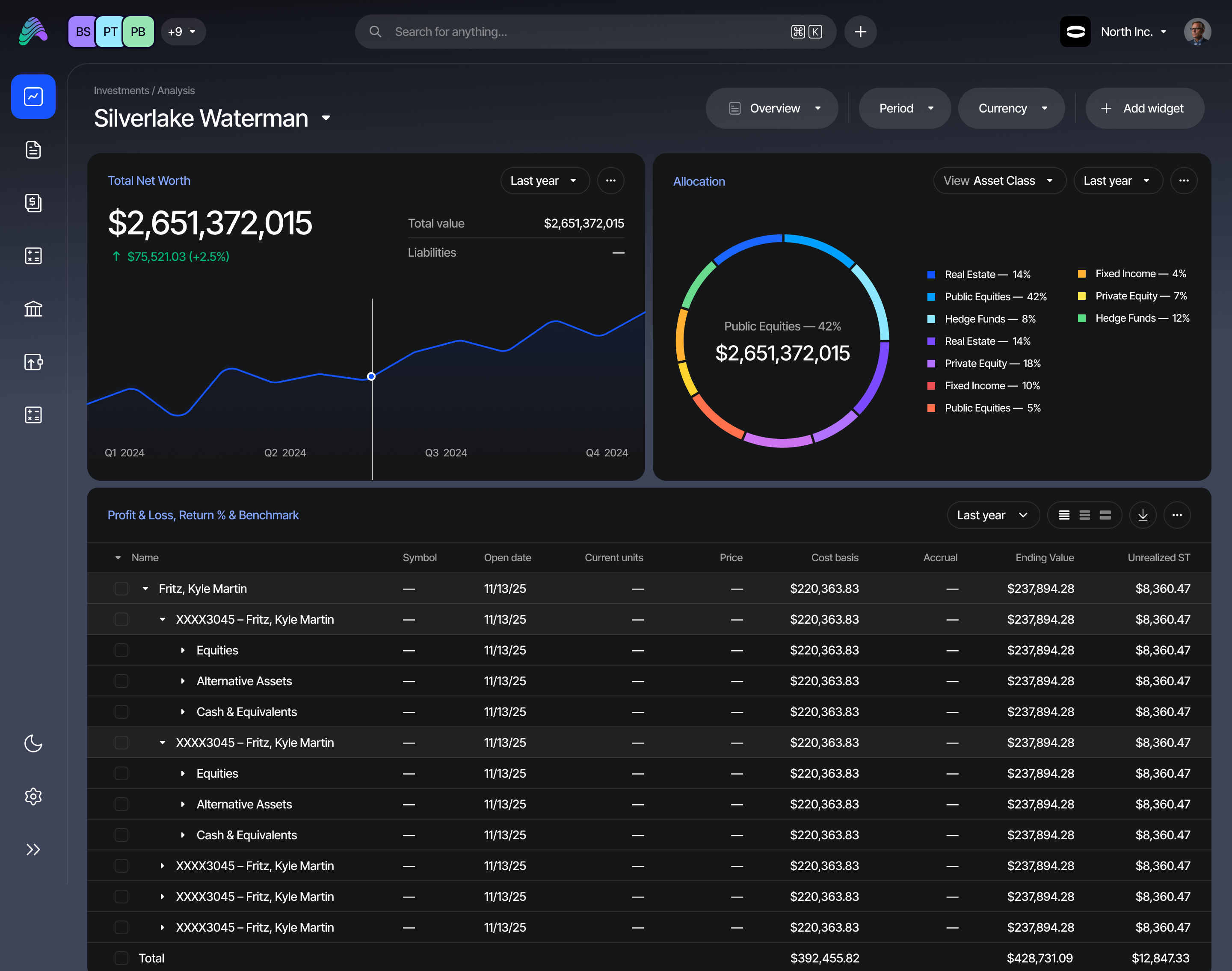The world is changing, and the rules of investing are being rewritten in real-time.
After decades of increasing global integration, a new era shaped by geopolitical fragmentation and policy-driven economics is forcing investors to rethink everything.
Nowhere is this shift more apparent than within the world’s most sophisticated investment vehicles: single-family offices.
BlackRock’s 2025 Global Family Office Report, a survey of 175 family offices collectively overseeing over $300 billion in assets, pulls back the curtain on how this elite group is navigating the turbulence.
The findings reveal a cohort of investors playing defense, leaning heavily into private markets, and grappling with a profound paradox when it comes to technology.
Caution and the Pivot to Private Markets
The report's dominant theme is caution. An overwhelming 84% of family offices highlighted the current geopolitical landscape as a critical factor in their investment decisions. This has fueled a deeply pessimistic macro outlook, with 60% feeling bearish—a level of anxiety matching the sentiment during the Fed's aggressive rate-hiking campaign of 2022-2023.
This caution has triggered a clear reaction: a flight to diversification and alternative assets.
- Nearly two-thirds (64%) are actively looking to increase portfolio diversification.
- Alternative assets now constitute 42% of the average family office portfolio, an increase from 39% in the previous survey.
- The enduring appeal lies in harvesting illiquidity premia and accessing returns uncorrelated with volatile public markets.
Within alternatives, two asset classes have emerged as clear favorites for fresh capital:
- Private Credit: Seen as increasingly attractive for its yield and total return profile, 32% of family offices plan to increase their allocation in 2025-2026—the highest figure for any alternative asset class.
- Infrastructure: Also gaining strong momentum, 75% of respondents feel positive about the asset class’s prospects. Three in ten (30%) plan to boost their allocations, drawn to its alignment with long-term growth themes and its resilience against inflation.
The AI Paradox in Family Offices
While the shift to private markets is a logical evolution, the report uncovers a much more unique and telling insight: a deep disconnect in how family offices approach Artificial Intelligence.
They are overwhelmingly enthusiastic about AI as an investment theme but are profoundly hesitant to adopt the technology within their own operations. They want to bet on the revolution from the stands, not join it on the field.
The Investment Case is Clear:
- A majority (51%) are already investing in or considering opportunities that will benefit from the growth in AI.
- Nearly half (45%) are investing in the tech firms building AI solutions and infrastructure.
But the Internal Adoption Case is Stalled:
- A staggering 61% admit they simply "don't know where to start".
- The primary barriers are fundamental: 47% cite privacy and data security concerns, while 44% point to a lack of in-house AI expertise. As one respondent bluntly put it, the available tools still feel "too immature" to be trusted.
- In stark contrast, only a third (33%) are deploying or even considering deploying AI technology internally to improve their core investing processes.
The Partnership Imperative
This technological hesitation is part of a broader theme of self-awareness. Family offices know they have expertise gaps and are increasingly looking for partners, not just managers, to help fill them. The report notes that significant majorities recognize internal deficiencies in key private market functions:
- Private Market Analytics: 75%
- Deal Sourcing: 63%
- Reporting: 57%
This desire for deeper, more consultative relationships is a crucial signal.
The fact that 22% of family offices have used or would consider an Outsourced CIO (OCIO) model further underscores a willingness to delegate in the face of growing market complexity and investment decision making.
The Bottom Line
The BlackRock report provides a clear map of our clients' mindsets. Family offices are defensively positioned, strategically allocating to private credit and infrastructure, and are acutely aware of their operational limitations.
The AI paradox represents the single biggest opportunity. While 49% of FOs believe AI is a route to competitive advantage, most are stuck on the starting blocks. The asset managers and partners who can demystify this technology, provide trusted solutions, and help bridge the gap between investing in AI and investing with AI will build the most durable relationships.
The future of managing wealth for this elite group is no longer just about delivering alpha; it’s about delivering the expertise, technology, and strategic partnership needed to navigate a world where the rules are constantly being rewritten.


.svg)



.png)



.png)
%20(1).png)
.png)


.png)
